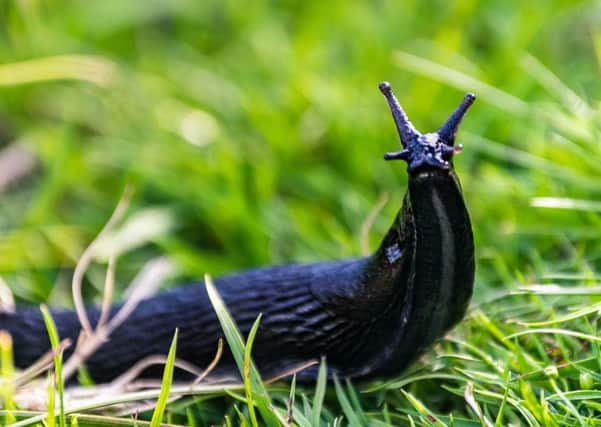Ways of keeping slugs at bay


However, from spring 2020, metaldehyde slug pellets will be banned - so what are the alternatives for dealing with them?
Plant pathologist and organic gardener Pippa Greenwood, a regular on BBC Radio 4’s Gardeners’ Question Time, says: “There are plenty of other really effective things you can do to deter slugs. The best option is to take a multi-pronged attack.”
Advertisement
Hide AdAdvertisement
Hide AdHere, Greenwood, who also offers advice on her website pippagreenwood.com, makes some suggestions...
Introduce nematodes:
Nematodes are natural microscopic living organisms found in UK soils, which control many common plant pests including slugs, but don’t endanger humans or wildlife. You apply by diluting the organisms in water, and then water them into the soil. The best time for outdoor use is March to October, when temperatures are 5°C or above, or year round in the greenhouse. By treating early, you can often cause a vast improvement as you kill the adult slugs before they lay too many eggs.
Create barriers:
Greenwood uses copper tape, widely available at garden centres, around the rims of containers and the walls of raised beds, which act as a deterrent. Other barriers, such as cloches, can also be placed over young vulnerable plants.
Block their path with mulches:
Crushed shells are a good mulch, according to Greenwood.
She says: “Use the shells as a surface mulch around vegetables including purple sprouting broccoli and calabrese.”
Advertisement
Hide AdAdvertisement
Hide AdThe resin of pine needles, as well as the spikiness, can also deter slugs. Mulch the needles right up to the stem of plants.
Encourage natural predators:
Tempt natural predators who feed on slugs and snails into your garden, such as ground beetles, frogs, toads, hedgehogs and birds. Provide a variety of wildlife habitats and nesting boxes.
Choose resistant vegetable varieties:
Some varieties of potato tuber, for instance, are particularly resistant to soil dwelling slugs, says organic gardening charity Garden Organic (gardenorganic.org.uk).
These include Ambo, Cara, Desiree, Romano, Sante and Valor.
Keep your soil structure and drainage sound:
Slugs thrive in rough, lumpy ground which is poorly drained, so improving drainage and soil structure is important where these conditions occur. Adding grit can help drain heavy and compacted soil.